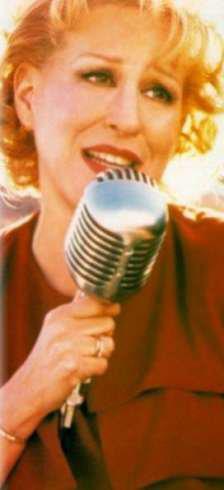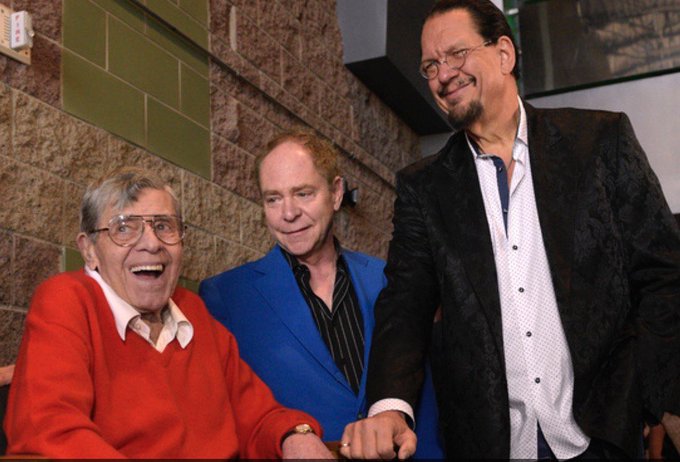Altoona Mirror
For The Boys Review
November 29, 1991
For the first hour, “For the Boys” is ,a dazzling musical comedy that displays Bette Midler‘s gifts as none of her movies have. Unfortunately, the movie is two hours and 15 minutes long.
Although the movie is wildly uneven, there is enough showbiz story find enough scenes of Ms. Midler staging to make this ambitious film worth watching – at least for fans of Ms. Midler’s undeniable talent “For the Boys” is a sweeping musical comedy that follows the careers bf,Two showbiz archtypes –the cynjoal comic Eddie Sparks (James Caan) and the feisty singer Dixie Leonard (Ms. Midler) –across three wars. Modeled on Bob Hope and probably Martha Raye, these characters are familiar but somehow alien to ‘many moviegoers, whose experience with war stretches back only to
the decidedly non-popular conflict in Vietnam.
The movie is written specifically as a star vehicle for Ms. Midler. Indeed, the film was produced by her company, All Girl Productions. While Ms. Midler obviously knows a lot about the movie business, having pretty much rescued Touchstone Pictures with her comedlc gifts, her choices for dramatic vehicles tend toward the sappy.
In “Beaches,” the abominable “Stella” and now “For the Boys,” Ms. Midler mistakes cliche and achmaltz for drama. Screenwriters Neil Jiminez, Marshall Brickman and Lindy Laub have structured the film as a flashback, which requires
‘the star to shuffle out as a senior citizcn encased in the worst make-up job since the Kennedy-Nixon debates. Dixie and Eddie have been chosen to receive something called the Presidential Medal for the Arts and the irascible Dixie has refused to take the stage with her old pal.
The movie quickly flashes back to World War II where war bride Dixie is recording a song as her sleepy son looks on. When a War Department cable comes, Dixie fears that her husband has been killed in North Africa, but it turns out to be a cable from the USO asking her to star with Eddie Sparks on tour.
“That’s a career maker” says her manager, sounding suspiciously like Mickey Rooney in those old Judy Garland musicals. When Ms. Midler hits the stage singing “Stuff Like That There” to a house full of raucous GIs, she is able to transport the movie magically to another time full of goodtime songs, seamed stockings and double-entendre stage patter. In the scenes where Ms. Midler and Caan re-create showbiz routines, the movie comes alive. But when the movie goes backstage, the movie becomes as thin as Caan’s gigolo moustache.
The screenwriter never shows us what draws Dixie and Eddie together. Dixie is obviously more talented and her dependence on this slightly smutty comic seems too dependent – especially for a performer as independent as Ms.
Midler. The move holds its interest through tours in North Africa (where Ms. Midler sings a great “Come Rain or Come Shine” to her husband, played by Arliss Howard) and a funny look at an old ’50s television variety show.
The second half of the movie decides to deliver a message, although it’s unclear what the moral is.
The final half is basically a custody battle between Dixie, who is a war widow, and Eddie, who has attached himself to her son Danny (Christopher Ry dell) as a surrogate father. In this section there is a long, boring and badly thought out section on the ’50s anti-communism scare – which seems to be in the movie so Ms. Midler can give an outraged
speech.
As the movie drags toward its ending, Dixie and Eddie make it to Vietnam, where son Danny is now a combat infantry officer. Although Ms. Midler sings a great version of the Beatles‘ “In My Life,” this sequence rings false from its shameless Use Of combat as melodrama to Ms. Midler’s jarringly profane stage patter.
By the time, Caan and Ms. Midler make onto the presidential awards stage, there is no reason to care why Dixie and Eddie should be together. Instead of faying to cover every war except for Desert Storm (while trying to cash in on the jingoism that conflict generated), the movie should have concentrated on the characters, not the background.
Caan does well with a part that is underwritten. He exudes the kind of showbiz sleaze the movies rarely show. Ms. Midler is amazing during her musical sequences. These interludes wake up the movie. However, during the dramatic moments, Ms. Midler resorts to the shameless overacting that ruined “Stella.”
The rest of the cast is pretty faceless, save for a fine performance by George Segal as Dixie’s comedy writer uncle. Director Mark Rydell, who directed Ms. Midler in “The Rose,” never goes for subtlety when histrionics will do and as a result “For The Boys” is as uneven as the war terrain it tries to cover.
The movie is worth seeing solely for Ms. Midler’s amazing versatility as an entertainment machine. However, once the spotlight is off, “For the Boys” is for the birds.











